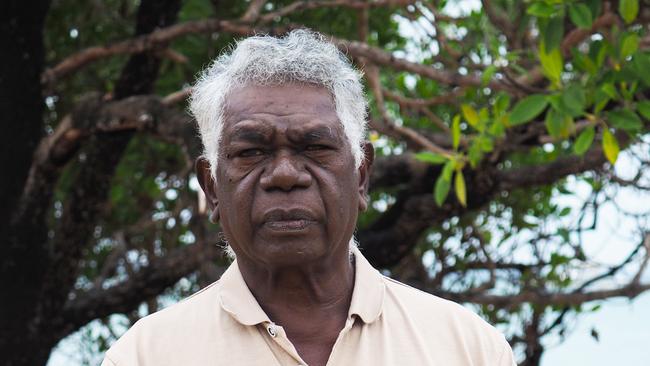‘Give Top End $1bn for basic services’, says NT Chief Minister Eva Lawler
NT Chief Minister Eva Lawler wants the commonwealth to establish a billion-dollar infrastructure fund to install or improve power, water, sewerage and roads across the Top End to Australia-wide standards.

Northern Territory Chief Minister Eva Lawler wants the commonwealth to establish a billion-dollar infrastructure fund to install or improve power, water, sewerage and roads across the Top End to Australia-wide standards.
Ms Lawler told The Australian she supported the Yothu Yindi Foundation’s call for the infrastructure fund after the East Arnhem organisation’s chairman, Gumatj leader Djawa Yunupingu, described how crumbling barge landings, non-existent arterial roads and unreliable power were stifling economic development in remote communities.
“Here we lack the basic infrastructure and services enjoyed by the rest of Australia. We lack the basic building blocks of a modern society,“ Mr Yunupingu told The Australian.
”Whilst we live with Third World infrastructure, we will get Third World outcomes.“
Mr Yunupingu’s clan has created its own small economy near Nhulunbuy. In a deal struck with former prime minister Tony Abbott, the Gumatj have a 99-year lease over their own community; they build their own houses, run their own school in a partnership with Sydney’s Barker College and they operate their own bauxite mine.
However, Mr Yunupingu and other leaders say their success is not easily replicated across the Top End, where a lack of basic infrastructure makes it difficult for traditional owners to run their own tourism, transport or construction businesses.
The Yothu Yindi Foundation claims successive NT governments are beholden to a bloated bureaucracy that constitutes a powerful voting bloc – an administrative class that literally runs the government.
“There is simply no political will to properly address disadvantage in the Territory when a member of parliament is fundamentally beholden to the voters that administer the disadvantage rather than those who experience it, advised by a public service that controls and benefits from the system,” the Yothu Yindi Foundation wrote to the Productivity Commission in October.
The Yothu Yindi Foundation says a big part of the problem is that the NT’s GST riches – calculated with regard for the needs of its poorest citizens – are handed over with few conditions. “GST funds are distributed untied and without any designated purpose,” the foundation writes.
“The funds ($3.644bn in 2022-23) are then controlled by the Legislative Assembly of the Northern Territory. Government in the Territory is usually formed by the party holding the most seats in our capital city, meaning the needs of those urban electorates are prioritised over the needs of remote and regional places.
“There are numerous examples of this type of spending within the supporting documentation provided. The inevitable impact of these distortions is that funds which are sent to the Territory based on disadvantage are redirected for urban or other political priorities.”
The Yothu Yindi Foundation sees a strange incentive for the NT to continue to fail.
“It’s a system which traps Aboriginal people in an endless cycle of deficit and despair, as the worse the disadvantage, the more untied GST funds are sent to the Territory,” it writes. “Rather than incentivising economic development and growth, the GST model incentivises disadvantage and a focus on maximising GST payments. There is no penalty for failing to address disadvantage, only reward.”
While Ms Lawler supports an infrastructure fund, she said since 2016 her government had upgraded more than 2200km of roads in the Territory.




To join the conversation, please log in. Don't have an account? Register
Join the conversation, you are commenting as Logout